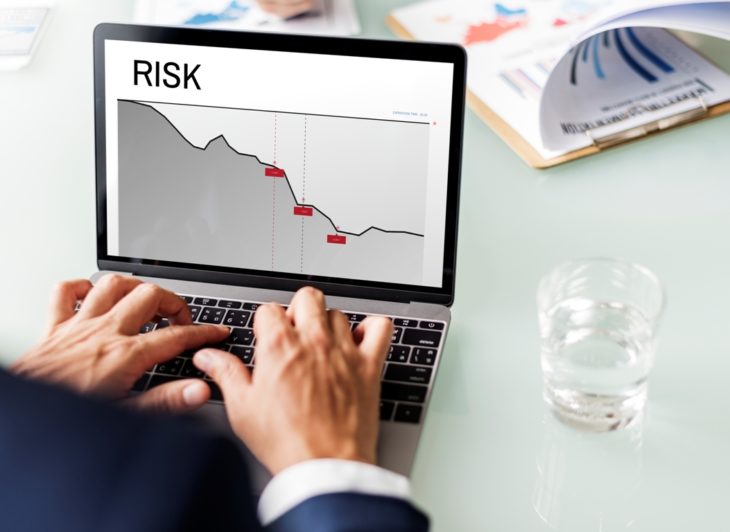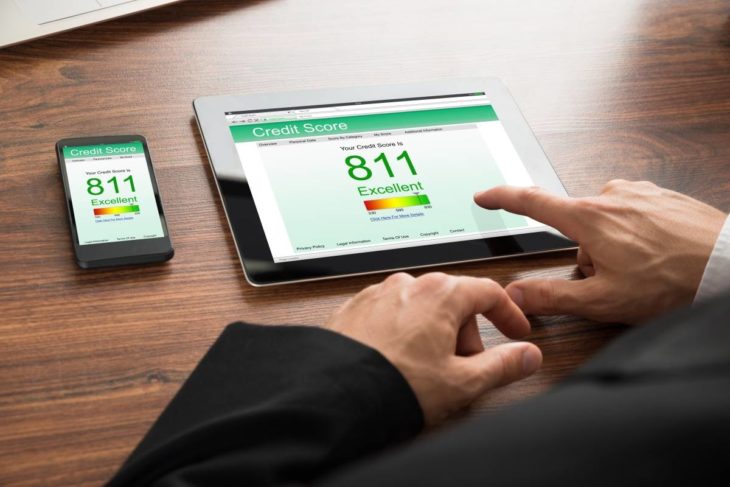Contents
- What Is A High-Risk Merchant Account?
- The Importance Of Partnering With The Right High-Risk Credit Card Processors
- Reasons For a Closed Merchant Account
- How To Determine If Your Business Falls To The High-risk Category?
- Most Common Types of High-risk Businesses:
- Rates and Fees For High-Risk Merchant Accounts
- 3 Tips To Lower A High-Risk Merchant Account Processing Cost
- Avoiding Greedy Providers: How To Choose the Right Credit Card Processing Providers For Your High-risk Business
- iPayTotal
What Is A High-Risk Merchant Account?
First off, a merchant account is a kind of bank account that allows you to accept debit or credit card transactions. When a business has a merchant account, it acts as the temporary holder for settled debit or credit card transaction funds.
The bank will send the funds straight after the transaction to the merchant account and deposits the funds into the business account of your choice.
Running a business in today’s world requires you to provide your customers with an option to pay via debit or credit cards. This is especially true if you have an online business. And even though most small businesses can get by with a PSP or payment service provider such as Square or PayPal, once their business reaches a certain size, they will definitely need to upgrade to a full-size merchant account.
Now, a high-risk merchant account is like any other bank account but is often given to businesses that are considered high-risk.
There are a lot of factors that can categorize you as a high-risk business— from the kind of industry you’re in or your credit score and history.
Businesses considered as high-risk should know that it is not an easy task to look for a credit card processor that accepts high-risk businesses. More often, high-risk merchants get denied from most payment processors. Even if they’re accepted, they are usually charged with higher rates than low-risk businesses.
Thus, it is important that you go to the right high-risk credit card processors who are willing to process transactions for your high-risk business.
The Importance Of Partnering With The Right High-Risk Credit Card Processors
The primary reason why you need to choose the right credit card processor for your high-risk businesses is to ensure that your account can avoid the chances of being terminated at a later stage.
Banks have the power to close your account suddenly and hold your funds without notice. And a terminated account means that you will have no way of selling your services or products. It stops all your cash flow completely and the profit from your services or products can be withheld by the banks for several months.
So, when looking for a high-risk merchant account provider, you need to take the time in meticulously choosing the right one in order to start off right. This way you can increase the longevity of your account.
Reasons For a Closed Merchant Account
Banks can close a merchant account for several reasons, especially high-risk business.
If your merchant account has been opened under a false context and your provider finds it out later, then your merchant account might be suspended. In addition, if you opened an account with regular providers, then your high-risk business merchant account will definitely be closed sooner.
Merchant accounts can also be terminated is there are suspicious activities— for instance, the merchant depositing transactions on behalf of another merchant or a merchant is maintaining several merchant accounts.
Also, if there is fraud involved such as fraudulent transactions, misuse of credit card information, overcharging customers or failure to deliver merchandise, the acquirer can terminate the account.
Last but not least, the most common reason why providers and acquirers close a high-risk merchant account is due to the excessive chargeback rate. Chargebacks are a big issue that most providers will require merchants to only have a chargeback ratio under 2 percent in order to maintain their accounts.

Source: paysimple
How To Determine If Your Business Falls To The High-risk Category?
Credit card processors usually determine your business kinds. Either you are a high-risk or you are not— there is no middle ground here.
And it gets complicated beyond that. This is because every credit card processors have their own guidelines in determining whether you are a high-risk business or not.
While some business kinds such as the adult entertainment industry and drug paraphernalia will always be considered a high-risk business, other business types may or may not be, depending on your processors.
Some merchant account providers have highly strict rules in determining a high-risk status, while some have more general criteria.
Although the exact criteria for determining if a business falls under the high-risk category vary from one provider to another, the following factors are typically used in order to determine if you are a high-risk business or not.
1. High Fraud or Chargeback Rate
This is probably the number one factor that decides whether you are on the high-risk umbrella or not. If your business has shown a high rate of either fraud or chargebacks, then you will probably be deemed a high-risk business. This is typically based on the purchasing behavior pattern of your clients.
Most banks would not want any association with you because your business suffering too many losses can get the authorities involved. And any businesses which are known for outright fraud will never see the light of day. Ever merchant account application will be declined without considerations.
The main example is those from the travel industry. They are mainly labeled as high-risk businesses since they have a lot of chargebacks initiated by clients who are not satisfied with their services.
2. Services or Products of Questionable Legality
Any products or services where its quality and nature raises an eyebrow will be deemed as high-risk. For instance, distributing pornography materials as well as selling drugs.
Processors will not want to associate with such products since they may cause problems and could be illegal. In addition, banks can also be criticized for doing businesses with companies that deal with firearms.
Due to the risk of associating with such companies, most banks will choose to decline their application for a merchant account. Adult entertainment offers a reputational risk that most banks don’t want. Online dating sites are also considered high-risk. Not only do they have high chargeback rates when they haven’t found what they’re looking for, but these sites are also a means to have extramarital affairs.
E-cigarettes are also considered high-risk since there are some legality issues in many states. This is because you have no way of knowing the age of people who buys from you.

Source: alliedwallet
3. Bad Personal Credit
In case you have a low credit rating, then you will be placed under the high-risk category. This is mainly because of the questionable financials of your business or personal loans that you don’t pay in time. It will show that you can’t support the sales volume that you’re applying to have.
4. International Business
Although you might think of expanding a business globally means more profit, it also places you under the high-risk category. This is because of the increase in the likelihood of fraud.
For instance, if your headquarters are overseas, then you have an offshore account, but most of your customers are in another country, it raises a red flag, screaming fraud. Also, lax banking regulations can also be a big factor in the home country.
5. High Ticket Sales
Tickets are considered to be high-risk. One of the reasons is that they are used as a purchase by credit card frauds. Many people tend to buy ticked with stolen cards then sell them off at a discounted price. When the owner of the misused credit card realized this, they will demand a chargeback.
So, if the average size of your ticket sales is thousands of dollars, then you will be definitely flagged as a high-risk business. This can affect companies that process a lot of BB transactions.
6. Questionable Marketing and Sales Practices
If people think that your business is a scam, then it can be tough to get a merchant account. However, offering reliable deals can affect your chances of getting one.
7. Recurring Payments
Nowadays, it is a common practice for people to make a subscription for products and services.
However, it can be an issue when a customer signs up for a monthly supply of services or goods, then they initially think that they just subscribed for one. These can cause them to request chargebacks when getting these services or goods.
There are also some cases in which a merchant confuses a client with offers and not providing the relevant details they need. Still, some offer these details, but in smaller prints so that consumers would not notice and causing them to pay more in the long run.
Also, there are some contracts that can be renewed by consent in which a consumer might not be unaware of when signing. This can also contribute to chargebacks for a recurring payment.

Source: merchantservicegroupllc
Most Common Types of High-risk Businesses:
To make it easier for you, we have listed a comprehensive list of some of the most common types of businesses that are deemed high-risk by processors:
- Antiques
- Bankruptcy attorney
- Automotive brokers
- Airlines or airplane charters
- “Business opportunities”
- Check cashing services
- Auctions
- Drug paraphernalia
- Exporting services
- Attorney referral services
- Gambling or Casinos
- All pornographic or sexually-oriented merchants including adult bookstores, adult phone conversations, escort/companion services, online adult membership, adult toys or paraphernalia, matchmaker services, online dating services and more.
- Collection agencies/ Debt collection services
- Electronics
- Merchants with poor credit
- Fortune tellers, psychic services, astrology, horoscopes
- Event ticket brokers (non-registered or unlicensed)
- Rewards-points programs or coupons
- Furniture sellers
- International merchants
- Multi-currency sales
- SEO services
- Pawnshops
- Real estate
- Life coaching
- Fantasy sports websites
- Modeling or talent agencies
- Mail or telephone order sales
- Vacation planners
- Social networking sites
- Brokering
- Chat sites
- Extended warranty companies
- Prepaid calling cards
- Telecommunications/ Telemarketing services
- Tour operators
- eBay stores
- Hypnotists or self-hypnosis services
- eBooks (copyrighted material)
- Discount medical or health care programs
- Annual contracts
- Debt repair, credit protection, and counseling services
- Magazine sales and subscriptions
- Financial strategy planning or advising
- “Hype” products or services
- Vape shops, e-cigarettes or cigarettes
- FFL or Federal Firearms License dealers
- Lotteries or sweepstakes
- Movie, music, or software uploads r downloads (eg., copyrighted digital products)
- Telephone companies
- Vacation rentals
- Prepaid debit cards
- Travel clubs, agencies or services
- High average ticket sales
- Third-party processing, factoring merchants
- Investment firms
- “Get rich quick” programs, books, etc.
- Loan modification services, finance brokers, or financial consulting
- Indirect financial consulting
- Offshore corporation establishment services
- Membership organizations with contracts of over 12 months
- Sports forecasting or odds-betting/making
- Replica watches, sunglasses, handbags, wallets, etc.
- Self-defense products and services, mace, pepper spray, etc.
- Time-shares or time-share advertising
- Debt consolidation services
- MLM or Multi-level marketing sales tactics
- International shipping, import/export or cargo
- Autographed collectibles, collectible currency
- Merchants on the MATCH or TMF (Terminated Merchant File) List

Source: emscorporate
Rates and Fees For High-Risk Merchant Accounts
Here’s the bitter truth for high-risk businesses:
Obtaining a merchant account actually costs more than those low-risk ones.
You will need to pay more in both the processing fees and account fees. In addition, some high-risk merchant account providers would even bind you on long-period contracts.
And while low-risk businesses can negotiate the length of the terms, the industry’s average is about 3 years for the initial term. It comes with an automatic renewal clause which extends for a one-year period after the initial term.
These lengthy contracts are quite unpopular with merchants, and the trend starts to move toward a month-to-month agreement so you can cancel your merchant account at any time without being penalized.
The sad truth now is that high-risk merchants do not have that much bargaining power. So, you should expect that you will be stuck with a lengthy contract that runs anywhere from 3 – 5 years, also with the automatic renewal clause that can extend it beyond the initial time frame.
In addition, your contract may also include an early termination fee which applies in case you wish to close your account before the contract term. And as if it is not bad enough, your contract might also have a liquidated damages clause which raises the price of terminating the contract even further.
While the merchant account industry is moving towards lower annual and monthly account fees, high-risk merchants can’t experience such benefits. You should expect that some of your recurring fees, specifically your basic monthly account fee would be higher than low-risk businesses. This is a reflection of how your processor is taking in additional risk by supporting your account.
Another expense that you will need to deal with as a merchant who falls under the high-risk category is a rolling reserve. Although it is a common requirement for startups of low-risk businesses, they are always required on high-risk businesses before they can start a merchant account.
Rolling reserve refers to a percentage of your profits being withheld by your acquirer in order to cover future unexpected expenses including chargebacks that can help prevent you from going out of business. And although tolling reserves can decrease over time and go away if your business becomes successful it can present short-term cash flow issues and even force you to bankruptcy if you do not manage it carefully.
3 Tips To Lower A High-Risk Merchant Account Processing Cost
1. Read Your Contract
Most processors will oblige you to sign an agreement contract. But before signing your name, you need to always read the whole contract. You also need to ask as many questions as needed about your merchant account so you can get a reasonable understanding of what everything in the contract means.
Also, make sure to pay close attention to restrictions, limitations, features and any termination fees.
2. Avoid Preset Limit
Processors that works with high-risk merchants usually offer you an account with preset limits. Although it may initially look great to businesses, once your business becomes successful and process higher volumes of the transaction, your provider may charge you a penalty fee if you exceed the agreed preset limit.
This can quickly reduce your overall profits and revenue. Thus, it is essential that go with a merchant account with unlimited transaction volume. Or you can find a processor that allows some flexibility in order to develop your business, regardless if you are a high-risk merchant.
3. Choose The Right Processor
You will need to look for the most trusted and reliable processor to work with your business. Although you are labeled as a high-risk merchant, it does not mean that you should agree for a less than average services and payment solutions at a higher rate.
You need to pick a high-risk merchant account provider that negotiate terms with you that you can receive the right solution at a reasonable price point.

Source: highrisksolutions
Avoiding Greedy Providers: How To Choose the Right Credit Card Processing Providers For Your High-risk Business
There are numerous merchant account providers that claim to serve the high-risk community. However, they just charge highly inflated fees and rates to unsuspecting high-risk business owners desperate to get a high-risk merchant account.
In order to avoid getting scammed by greedy providers, here are some tips to help you choose the right credit card processing provider that will really help your business grow.
1. Check For Their Website
If a high-risk merchant account provider has a website layout that looks dated or very basic, then it is a bad design. Most scam providers are just small companies that do not have enough budget for a professional website with a lot of them not able to update their website for years.
A website that is not professional enough or contains a lot of nonsense should be the first clue that something is not right with the company.
2. Check Their Reputation Online
You will also need to research what others are saying about a certain company. If the reviews are bad, then you need to stay away. Most often, the reviews displayed on their website should be positive. So consider searching the internet other than their website to find any real reviews.
If you cannot find any reviews of the provider, then that is an even stronger indication that this company should be avoided at all costs. In addition, do not forget to check consumer protection sites such as Ripoff Report or BBB (Better Business Bureau) for feedback from merchants who have done business with the specific company.
3. Reasonable Rates
Being a high-risk business really means a higher price point than lower risk businesses. However, it does not mean that providers should offer you really high prices for their services.
The same goes for processors that advertise rates which are significantly lower than the average rate for a high-risk business. Chances are those rates will significantly increase after a short period of time or that there are hidden fees that they are not disclosing.
Ask the specifics about what rate applies to a bulk of your transaction types (card-not-present, card-present). Also, ask whether the rates that you are being quoted apply to reward cards in addition to pin debit transactions. You should be certain that you are not being quoted for an “introductory offer” that can expire in a specific number of months.
4. Customer Services
You will also need to investigate technical support choices. For instance, does this merchant account provider offer a toll-free customer service number? Do they offer various ways for you to communicate with them in case of problems? What are their customer service hours?
5. Consider Your Business’ Specific Needs
Does the high-risk merchant account provider offer a full range of services that you need? If you are a brick and mortar business but also need a virtual terminal, or maybe you have an e-commerce store, can this processor handle all your needs?
You need to think about the future, particularly if you have plans to expand or diversify your business.
Consider these tips and ask these questions before signing for anything. Make sure to test anything that you can test. Call the customer service department, at least 3 times varying the times of the day. This should tell how fast they respond to calls. Ask them if they can help you understand and guide you through the process.
Lastly, the process of getting a high-risk merchant account can differ between providers. Some will end you the necessary gear and expect you to get it running by yourself. Others will walk you through every step in setting up your account. So, make sure that you understand how much help you can get from the provider you are considering.

Source: merchantadviceservice
iPayTotal
Experts at iPayTotal, promise you a legit and reliable merchant account for your high-risk business at a competitive price.
They asses each and every high-risk merchants individually without discrimination, regardless of what kind of business you do or what you’re selling as long as they are legal. They will study your method of doing business and will help you along the way so that you can board with the right acquirer that offers the most beneficial and well-suited for your business need! Apply Now!
